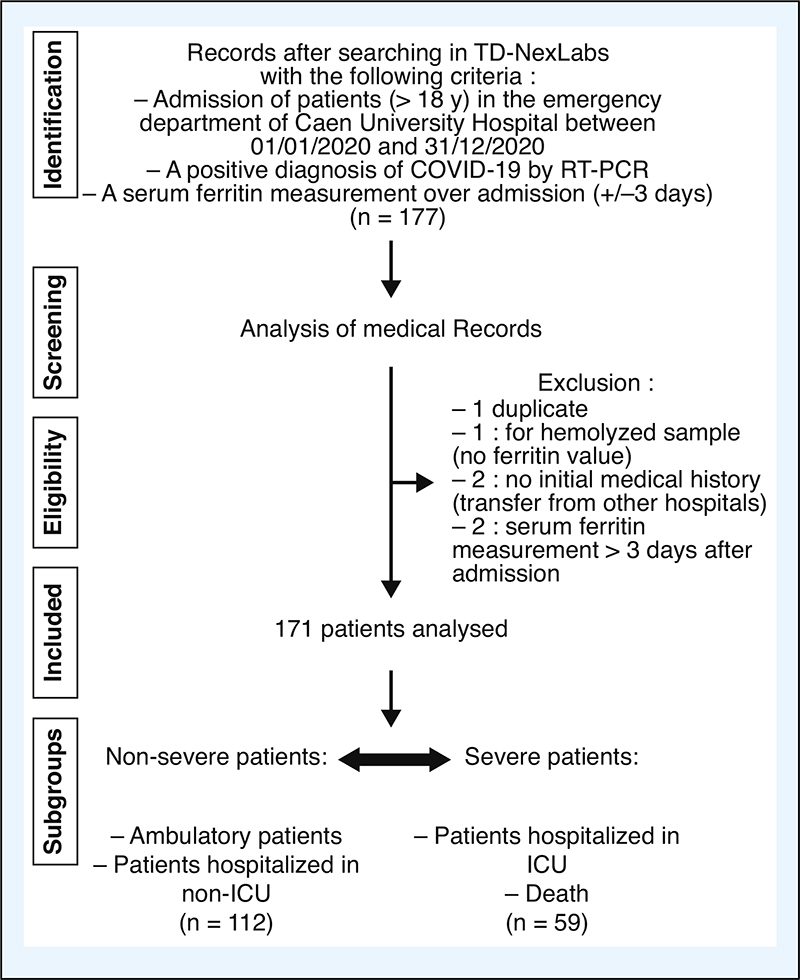Annales de Biologie Clinique
MENUFerritin as a predictive biomarker of severity in Covid-19 Volume 80, issue 4, July-August 2022
- Key words: ferritin, CRP, obesity, Covid-19, predictive markers
- DOI : 10.1684/abc.2022.1725
- Page(s) : 363-8
- Published in: 2022
To prevent the crisis-level shortage of beds in hospitals and for a more efficient support, it’s necessary to early identify coronavirus disease-19 (Covid-19) patients at risk to develop a severe form of the disease. The goal of our study was to determine whether biological markers, including the serum ferritin, could predict the severity of the Covid-19. One hundred and seventy-one patients, who were admitted to Caen University Hospital, were included retrospectively with a positive diagnosis of Covid-19 by RT-PCR. A serum ferritin measurement was performed for all patients. They were further classified either into a non-severe or a severe group based on their hospitalization in intense care unit (ICU) for mechanical ventilation or death. Univariate analysis revealed a significant association between increased serum ferritin and CRP levels, obesity, CT scan lesions, pathological respiratory rate, decreased PaO2/FiO2 ratio, the NEWS-2 score and the severe (n = 59) vs the non-severe (n = 112) outcome of Covid-19 patients. However, in a multivariate analysis, only CRP and obesity were associated with the severe form of Covid-19. While pathological level of serum ferritin at admission is associated with severe form of Covid-19, combination of increased CRP level and obesity would better predict the severity of the disease.


